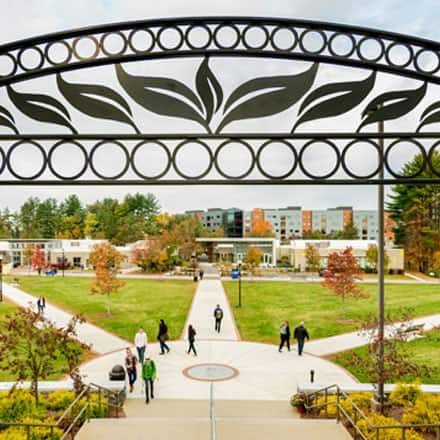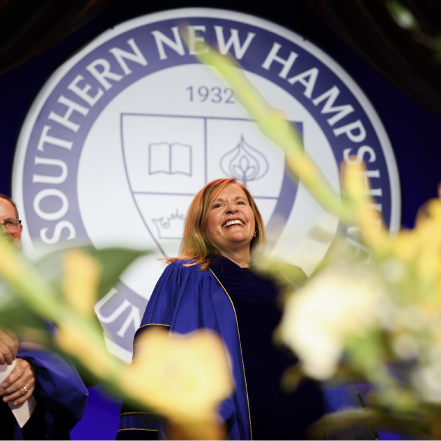Accessibility, Learner-Centered Design Make Higher Ed More Inclusive

This week, to mark the 34th anniversary of the Americans with Disabilities Act (ADA), The Center for Higher Education Policy and Practice (CHEPP) at Southern New Hampshire University (SNHU) released its latest white paper to acknowledge the landmark law and provide research and evidence around the importance of further improving accessibility in higher education.
The new research, Online-by-Design: How Accessibility is Fundamental to Learner-Centered Design, lays out the path forward for higher education institutions, and offers a learner-centered design framework to guide the development of postsecondary education systems that better meet the needs of learners with disabilities. The paper also provides policymakers with recommendations to drive more inclusive higher education opportunities at the federal level and argues that learners with disabilities deserve higher education systems that go beyond legal compliance and instead aim to create truly accessible and inclusive systems.
The white paper identifies the systemic barriers that learners with disabilities face in higher education and the importance that belonging has on an individual’s educational experience.
 The report shares stories of real learners like Ryan Menter '22, who lost his vision as an infant due to a pediatric brain tumor. Menter started taking online courses at SNHU during the COVID-19 pandemic when he was still in high school. He later enrolled full-time on SNHU’s Manchester, NH campus and graduated at age 18 with his BS in criminal justice. During his studies, Menter worked closely with SNHU’s accessibility center and New Hampshire’s orientation mobility instructor to navigate campus and fully access his curriculum, including receiving braille hard copies of his textbooks and PowerPoint presentations ahead of class. He was also able to ensure that his schedule fit around his medical appointments.
The report shares stories of real learners like Ryan Menter '22, who lost his vision as an infant due to a pediatric brain tumor. Menter started taking online courses at SNHU during the COVID-19 pandemic when he was still in high school. He later enrolled full-time on SNHU’s Manchester, NH campus and graduated at age 18 with his BS in criminal justice. During his studies, Menter worked closely with SNHU’s accessibility center and New Hampshire’s orientation mobility instructor to navigate campus and fully access his curriculum, including receiving braille hard copies of his textbooks and PowerPoint presentations ahead of class. He was also able to ensure that his schedule fit around his medical appointments.
CHEPP’s paper offers a learner-centered design framework and outlines six key elements of accessible education to guide institutions:
- Make accessibility resources and access to disability offices highly visible and widely available.
- Use Universal Design for Learning (UDL) principles when designing and delivering programs.
- Ensure centralized systems and consistent technology across courses and departments.
- Operate with a continuous improvement mindset and create open channels for feedback from learners.
- Create university governance policies to support accessibility and inclusion.
- Regularly engage and train staff and faculty in accessibility standards and systems.
For more insights on access and inclusion for learners with disabilities in higher education, read the CHEPP white paper, Online-by-Design: How Accessibility is Fundamental to Learner-Centered Design.
Explore more content like this article

SNHU Celebrates Largest Fall Commencement

Government Shutdown Update for Military Students

SNHU Celebrates the Inauguration of President Lisa Marsh Ryerson
About Southern New Hampshire University

SNHU is a nonprofit, accredited university with a mission to make high-quality education more accessible and affordable for everyone.
Founded in 1932, and online since 1995, we’ve helped countless students reach their goals with flexible, career-focused programs. Our 300-acre campus in Manchester, NH is home to over 3,000 students, and we serve over 135,000 students online. Visit our about SNHU page to learn more about our mission, accreditations, leadership team, national recognitions and awards.

